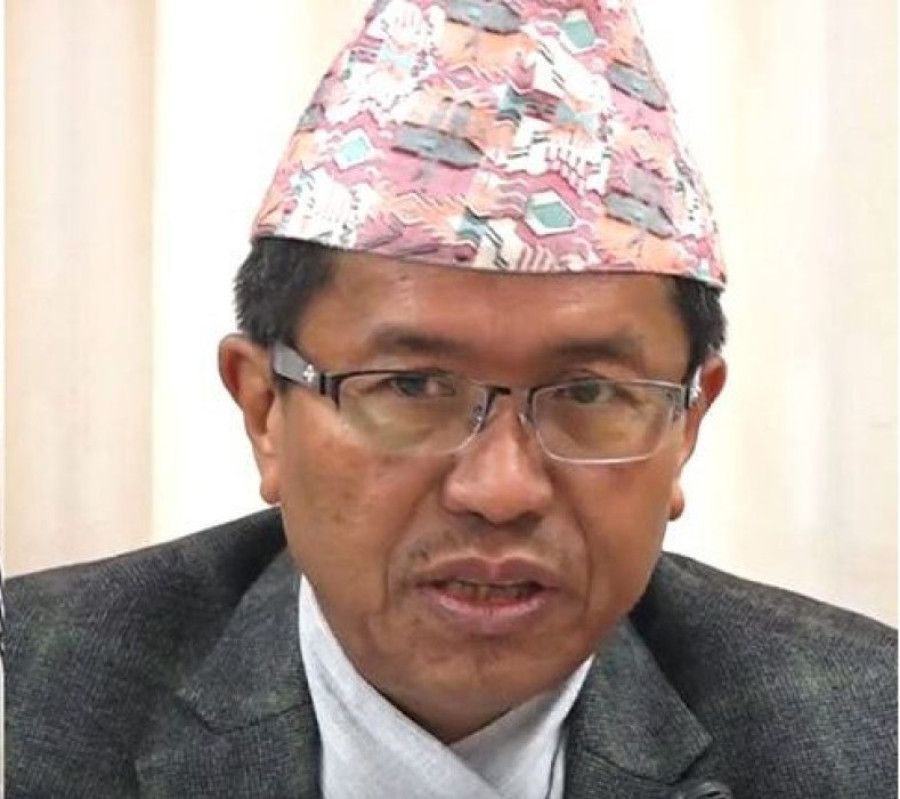National
Anti-graft body chief says result of Teramocs probe ‘very soon’
Parliamentary committee has directed the constitutional watchdog to look into alleged corruption in the costly telecom equipment procurement case.
Post Report
The Commission for Investigation of Abuse of Authority is in the final stage of its investigation into the alleged corruption in Nepal Telecommunications Authority’s procurement of the Telecommunications Traffic Monitoring and Fraud Control System (Teramocs).
Following widespread controversy and directives from the Parliament’s Public Accounts Committee, the corruption watchdog has been investigating the matter.
Teramocs is a technology conceptualised for a lawful interception of domestic voice/data services and traffic monitoring. It can detect fraud and have control over the network of telecom service operators who are providing internet and telecommunication services to the public.
Appearing before the House committee on Tuesday, Prem Kumar Rai, chief of the constitutional body, said they are currently analysing both the findings of their probe and the statements from the individuals involved in the alleged corruption.
“I would like to inform you that the investigation process is at the last stage,” Rai told the committee. “You will see the results very soon.”
The commission has already recorded statements from Minister for Health and Communications Mohan Basnet and Chief Secretary Baikuntha Aryal over their alleged involvement in the corruption.
The commission has also quizzed Nepali Congress lawmaker and former minister for communications and information technology Gyanendra Bahadur Karki.
Basnet and Karki had long been ignoring the commission’s call for statements. They finally recorded their statements earlier this month after the opposition lawmakers raised the issue in the House. The investigation process was delayed as they didn’t appear for the statement on time. All three accused will be suspended from their duties if the commission registers a corruption case in the Special Court implicating them.
Starting February 18, three opposition parties—CPN-UML, Rastriya Swatantra Party and Rastriya Prajatantra Party—have been pressuring Prime Minister Pushpa Kamal Dahal to sack Basnet along with Minister for Physical Infrastructure and Transport Prakash Jwala.
Opposition lawmakers have demanded Jwala’s resignation citing that the government probe report holds the minister’s negligence responsible for the Balkumari incident that took the lives of two youths. The government has yet to publicise the report of the panel formed to probe the December 29 incident, and public pressure has been building on the matter.
The opposition parties have decided to obstruct the House proceedings starting Friday if Dahal doesn’t dismiss Basnet and Jwala.
Pointing out possible irregularities in the procurement of the telecom system, the House committee on December 27 had asked the anti-graft body to investigate the deal and take legal action if any irregularities were found. The committee had directed the commission to submit a progress report on its investigation within 30 days. Rai presented himself to the committee to share the progress.
The NTA has said that it bought the system to monitor whether service providers are charging customers fees as per the rule and delivering quality services.
However, there are concerns that the technology might enable the NTA to collect confidential personal information such as call details and SMSes of citizens. The telecom service operators have been reluctant to make their system compatible with Teramocs, expressing fears of violating individuals' privacy.
The House committee had suspected irregularities in the procurement of the system, which is reported to cost around Rs3 billion. After a preliminary investigation, the committee had said that “based on the study of the available documents on procurement, there is no reason not to suspect irregularities.”
It subsequently directed the commission to investigate the matter. The committee also ordered the government to halt the procurement process and not to make any payments stating that the procurement process does not follow the due legal process.
Informing the House about other investigations the commission was pursuing, Rai shared his experience that probing corruption had become increasingly challenging as several such deals were sealed outside the country. “Obtaining information from a foreign land is problematic in the lack of bilateral agreement with those countries,” he said, requesting the government to forge bilateral deals and get those approved by Parliament.
Investigating corruption in the procurement of wide-body aircraft for the Nepal Airlines has been affected as the CIAA had not been able to get relevant information from other countries, Rai said.




 8.67°C Kathmandu
8.67°C Kathmandu














